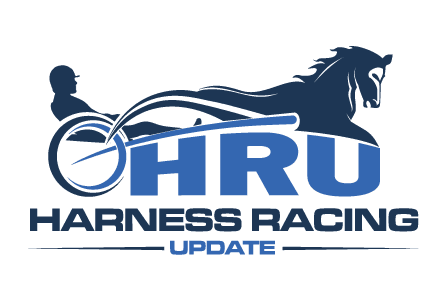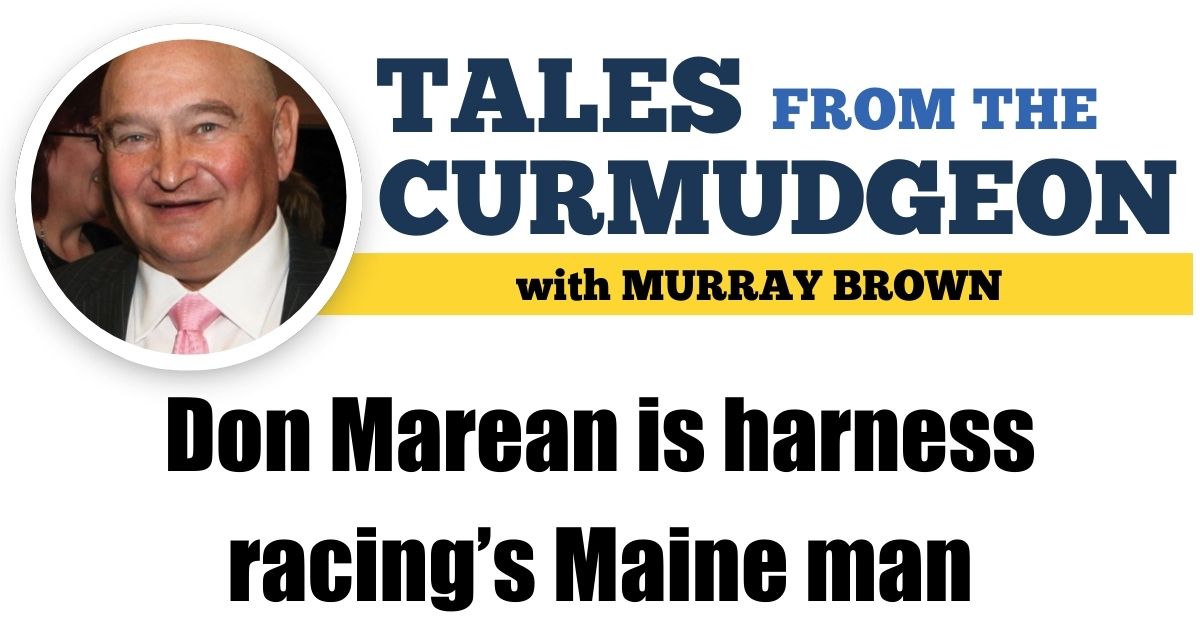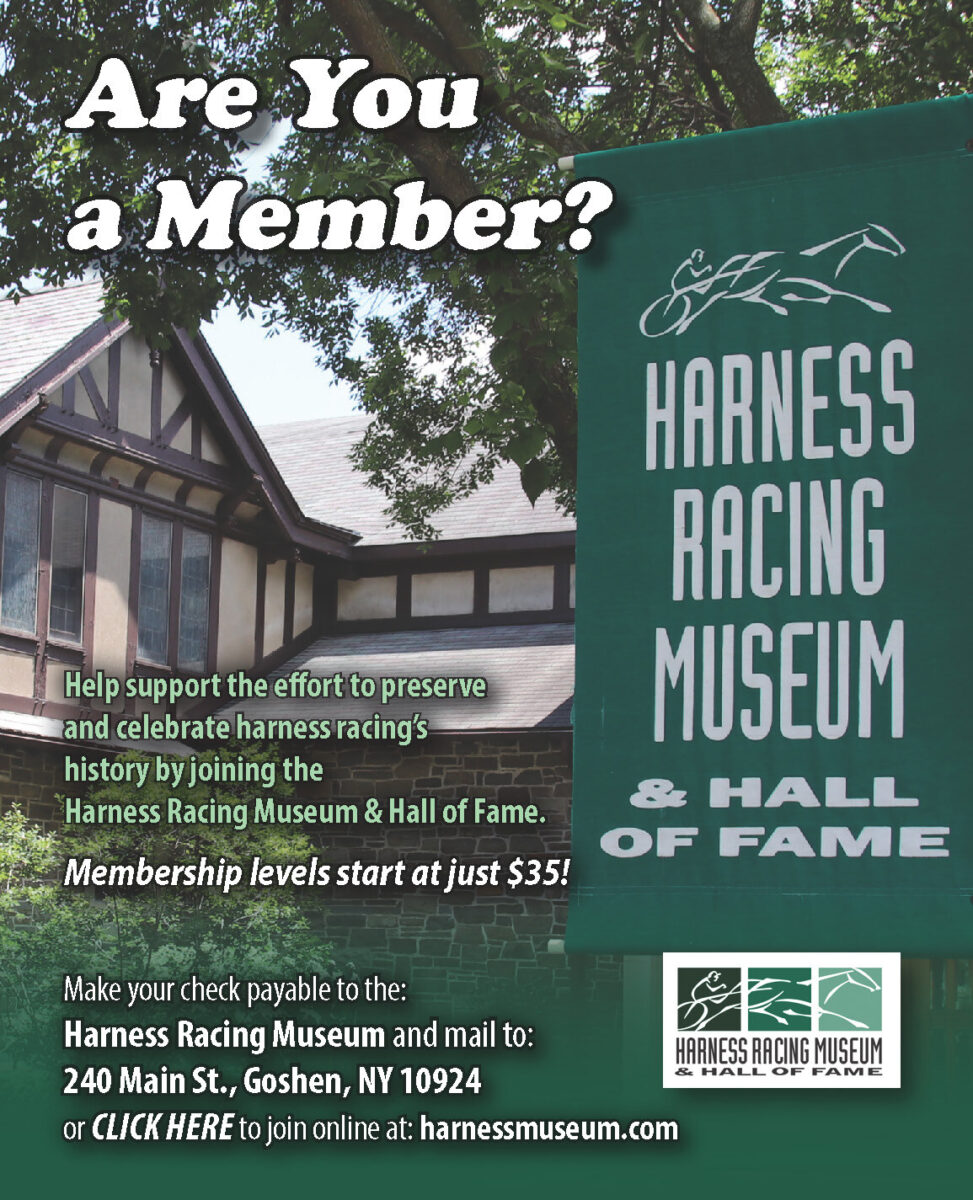Don Marean is harness racing’s Maine man
by Murray Brown
Don Marean and I share a great deal. We are both products of the same generation; less than two months in age separates us. We are both what we like to say “addicted” to the sport of harness racing. We both like to travel this great country, although Marean has been in it far deeper than me. Neither of us were born into the sport as so many previously have been. Marean came by his addiction when he first began going to the races at Gorham, ME, in the mid-1950s. It was pretty much love at first sight. He became an almost instant fan. It did take him some time before he decided to dip his toe into the water and become an owner. That happened in 1984. Ever since then he has never not owned at least part of a horse, whether it be a racehorse, a broodmare, a yearling, weanling or suckling.
You are a native Mainer. You were born, raised and still reside in Maine.
“Yes. My wife Linda and I live in Hollis, but I was born in the original home my father built in Standish, ME in the 1930s. My experience in the horse business mostly extends to our great state in which I’ve not only raced horses, but also bred them, raised them and eventually became involved in the politics relating to the sport and its future. I’ve not only been involved in the politics relating to the sport in Maine, but one might say in the entire sport because of my involvement with the United States Trotting Association.”
Let’s begin with your involvement with the USTA and then meander to the other aspects of your life, both in and out of harness racing.
“I have been a USTA director for 30 years and I am chairman of District 9, a post I have held for several years. I’m vice chairman of the USTA’s finance committee, the committee — with the possible exception of the rules committee — that I regard as being the most important one with which the USTA governs.”
There are those that say that the USTA is nothing more than a paper tiger. That it has no real power. It is the state commissions that have the real power and govern the sport. One might say that your state of Maine is one where this is most evident.
“I would respond that there is perhaps a degree of truth to that. Nevertheless, it is my strong belief that the USTA is the most important organization in the sport. It rules over all matters pertaining to breeding and record keeping, which is undoubtedly its most important responsibility. Before the USTA’s establishment as the sole record keeper of the sport, its records were a bit unorganized but today I would venture to say that the USTA together with Standardbred Canada are second to none, where not only its members, but also anybody interested in the sport can find just about anything relative to anything involving its horses and its human participants in it.
“With regard to racing, the state commissions do rule, however speaking with regard to my state of Maine, when a subject comes before its commission that is not covered in the commission rules, the commission defers to the rules of the USTA to assist them.”
My strongest memory of you was several years ago when you addressed the board saying that you felt that the greatest threat facing the sport was with regard to animal welfare. You spoke of the reality of horses being in some cases abandoned, starved and in other ways not treated properly. You said that it was only a matter of time before the animal rights people jumped all over us, if we did not do something to change their view of the way our horses were being treated.
“I spoke with Phil Langley, then USTA president about the situation. He asked me how much I thought would be needed to make a concerted proactive effort to not only change the view of some that our horses were being mistreated, but perhaps more importantly to come up with a positive plan to show that we were going to do something about it. I threw up the number of half a million dollars. Phil was a little hesitant at the suggestion, saying that it was a noble thought, but that the money was just not there. He said that I should put this before the finance committee for their consideration. I did put it before the finance committee. I didn’t get the half million dollars I was looking for but we did get $100,000. I might add that we have got that $100,000 every year since. It is certainly not enough. But I believe it to be a step in the right direction. Ideally if the money was there, I believe we would have more to give to help those horses that need it. Under the urging and efforts of the USTA a new aftercare 501C3 program was established and supported by a $5 fee on all horse transfers. The new group is known as the Standardbred Transition Alliance, whose mission is rehabilitate, retrain and rehome standardbreds.”
You were involved for some time as a market breeder.
“Yes, my wife Linda and I purchased a 58-acre farm here in Hollis, where we established a breeding venture. At one time we had more than a dozen broodmares, where we raised yearlings to sell at public auction. After ٢٠ years, we realized that it was beyond our economic means and we just were not able to compete to the point where we were not losing money. We still own the farm though, and with us, still as a resident, is one remaining still solely owned horse, 31-year-old Lindons Rowe Me N. In December 2023 we placed the land in conservation, so that if it is ever used again, it will only be for agricultural means in perpetuity.”
Of all the horses that you have owned was there a favorite?
“That would have to be Armbro Blaze. Most people outside of Maine may not know him, but he was a wonderful, old warrior. He took us to places where we had never been before. He won invitationals and other fast class races. Today and for several years recently, we have owned parts of a few of the horses that Sam Beegle buys as yearlings and races mostly in Pennsylvania, both at the pari-mutuel tracks and at the fairs.
I believe you have been involved in politics in Maine.
“Yes. I served 12 years in the Maine legislature and another four years as a lobbyist. I would like to believe that I served my harness racing fellows well while being there. We have had losses and gains. We lost Scarborough Downs, but we still have Bangor and a new group has leased Cumberland Fair Grounds and both entities are doing fairly well, perhaps not thriving, but doing well. Handle is up at both places and the racing is good and to my eyes highly competitive.
“There is a movement to build a new all-weather track in the southern part of the state. It isn’t moving right now because interest rates are so high. But I believe when they come down, there is a good chance that this track will come into being. The breeding industry such as it is, has struggled, but I believe that it is also growing again. I presently serve on the Maine Racing Commission. It enables me to follow the happenings of the sport here from a birds-eye view. The one negative about that is that quite understandably, it keeps me from owning horses racing here because of a possible conflict of interest, although it is not a rule, I just think it makes good sense.”
What is life like these days for you?
“I would say pretty darn good. Aside from the infirmities of aging and more specifically a chronically bad back, I would say life is pretty good. I follow the horses and the sport. Linda and I love to travel in our motor home. We take at least one long trip every year. We have driven to all the states in the United States, with the exception, of course, of Hawaii. We have been to Alaska twice. We have been to all 10 Canadian Provinces and Territories. The only part of Canada to which we have not been is Labrador. But that is on our radar. This year we have plans to go to the part of the United States that we enjoy the most, the far west, Big Sky Country. We will hit Wyoming, Montana, Idaho, the Dakotas and wherever our trusty home on wheels takes us.”

















